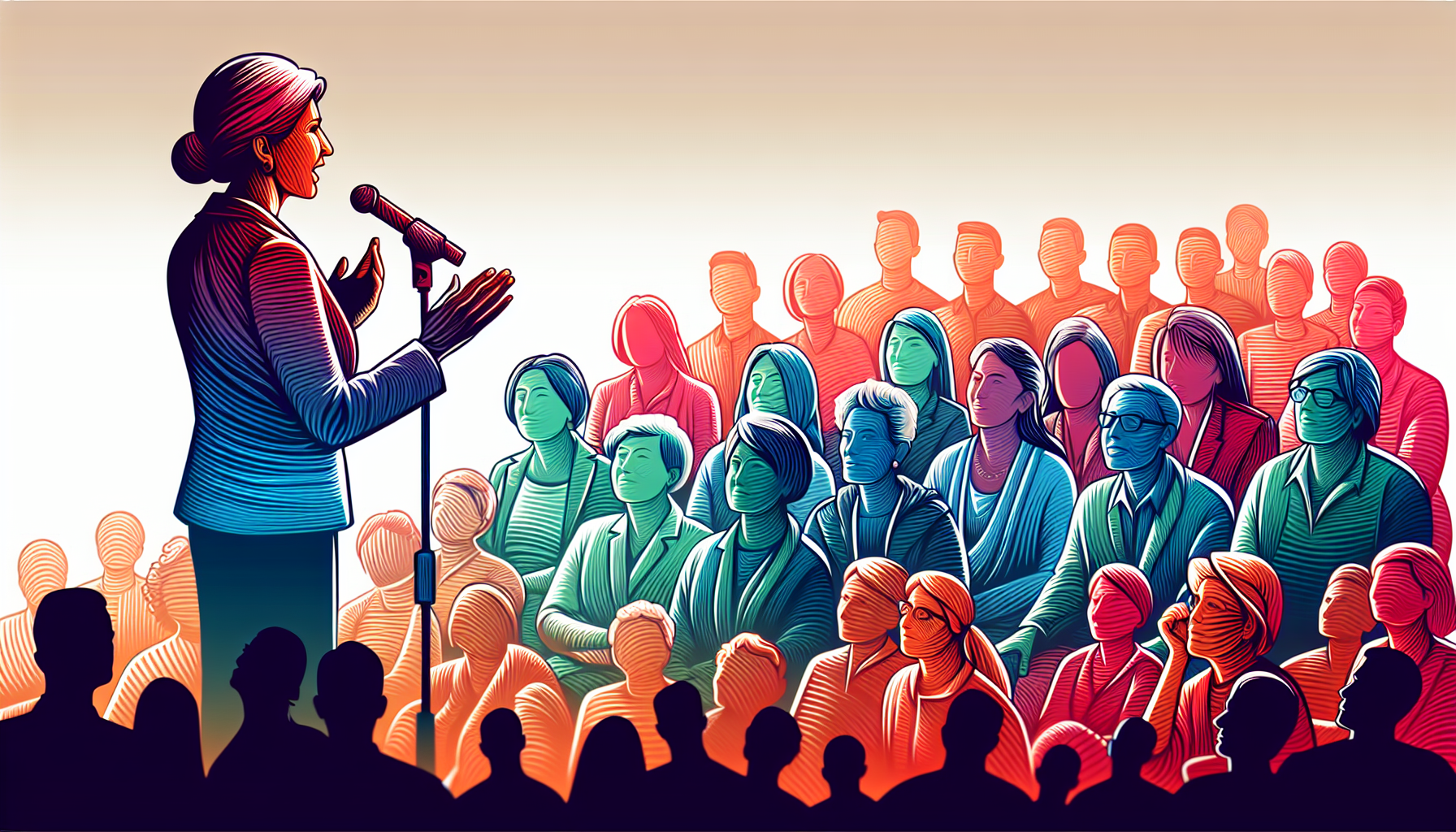On this page
This summary encapsulates a podcast episode from 'Software Misadventures' hosted by Ronak Nathani, featuring Julie Amundsen, a senior staff software engineer at Google. The conversation revolves around Amundsen's career journey, including her experience with mass layoffs, her job search during a hiring downturn, and the impact of these experiences on her perspective towards work and life. The discussion also covers her approach to job applications, her openness to both Individual Contributor and people leadership roles, and her strategies for job searching in companies of different sizes. Lastly, she shares her insights on the mismatch between job market realities and personal expectations and the process of adjusting to lower job titles.
How does it apply to you?
This podcast episode can guide those navigating the job market, particularly in the field of software engineering. It can help job seekers understand the nuances of the job market, deal with career breaks or job title changes, and develop effective job search strategies.
Developer Checklist
Understanding the Job Market
Networking and Relationship Building
Interview Preparation and Process
Career Break and Personal Development
Summary
Introduction and Host's Background
The podcast host, Ronak Nathani, introduces himself and provides a brief background about the podcast called 'Software Misadventures'. He also shares personal updates about his move to Toronto and his co-host's travel experiences. The podcast aims to bring conversations with engineers, founders, and investors about their journey, lessons learned, and misadventures.
Introduction of the Guest
The guest for the episode is Julie Amundsen, a senior staff software engineer at Google working on machine learning infrastructure. She previously worked as the director of machine learning infrastructure at Netflix and has a diverse experience ranging from working in the public sector on large scientific programs, the first generation of streaming service at Netflix to various flavors of startups.
Discussion about Career Break
Julie shares her experience of taking a career break after being affected by mass layoffs. The conversation includes her journey finding a job as a senior engineer during a time when most companies weren't hiring, how she positioned herself in the market, and the nature of interviews for senior roles. They also discuss the impact of her career break on her perspective towards work and life.
Job Requirements and Interview Process
The host recalls his past interaction with Julie regarding a potential job opportunity in her team. He appreciated the detailed job requirements and the clarity provided about the role. He also commends the unique approach Julie took in explicitly mentioning the kind of work that would not be a good fit for the role.
Job Search Journey
Julie talks about her journey of finding a new job, mentioning that she had conversations with around 60 people in her network. She discusses the challenges she faced during this journey, including dealing with the discrepancy between her expectations and the reality of the job market.
Context of Job Search
Julie provides context for her job search, explaining that she was already dealing with personal and professional issues before starting her job search. These included coping with the stress of the pandemic, going through a divorce, struggling with job satisfaction, and taking a medical leave due to stress.
Mismatch of Expectations
Julie shares her experience of facing a mismatch between her expectations and the reality of the job market. She initially expected to secure a job with an equivalent title or level to her previous job. However, she found that many companies wanted her to take a position one or two levels below her previous role.
Job Market and Personal Skill Level
Julie emphasizes that people experiencing a downgrade in job titles should not take it personally or as a reflection of their skills. This situation is an artifact of the current job market, not their individual value or impact. Julie also mentions that it is a common occurrence, particularly in the current climate, and it would be challenging to move up a level by switching companies.
Adjusting to Job Title Changes
Julie discusses the process of accepting a lower job title. It involves understanding the situation as a result of the job market, not personal failure. Julie mentions having a brief 'pity party' but then adjusting perspective to see the value in getting interviews and feeling grateful for the opportunities that they have.
Job Switch and Role Change
Julie talks about making a career switch and changing roles, moving from a senior staff software engineer at Google to an individual contributor (IC) role. This switch marks the second or third time in their career that they've made such a move.
Job Application Strategy
Julie shares their strategy for seeking new job opportunities. They consider themselves a generalist with a diverse experience base, looking for roles that offer challenge and growth. Julie also mentions focusing on machine learning infrastructure and data infrastructure roles, given their recent experience in the field and its current high demand.
Consideration of IC and People Leadership Roles
Julie mentions being open to the idea of both IC and people leadership roles during their job search. They applied to both types of roles, stating that they could have been happy in either. Julie emphasizes the importance of maintaining a flexible mindset in job search, rather than having a rigid view of the role.
Job Search Approach for Different Company Sizes
Julie discusses how the approach to job search may vary based on the size of the company. For smaller companies without an official senior IC track, they focused more on people leadership roles.
Choosing a Career Path and Understanding Job Responsibilities
Julie explains her decision to work for large companies like Google, emphasizing her commitment to a particular career direction. She discusses how the role of people leadership varies depending on the company's stage. In startups or young companies, the focus is more on execution and strategy rather than processes. In contrast, more mature companies have established processes around compensation, promotions, and other aspects. However, Julie finds tackling challenges more motivating than dealing with these processes.
Impacts of Current Climate on Job Interviews
Julie acknowledges that getting an interview in the present climate is a positive achievement, given the broader happenings in the tech industry. She advises people in a similar situation to consider how they can position themselves to stand out. This includes thinking about transitioning from people leadership roles and how to present oneself in such cases.
Navigating Role Transitions and Hiring in Difficult Times
Julie discusses the challenges of changing roles, especially if your job title doesn't match your actual responsibilities. She advises focusing on what you've accomplished, as hiring based on potential is less common in difficult times. It's crucial to demonstrate how your experiences can add value to the team you're applying to. She shares her own experience of joining a team that lacked background in a specific area she had expertise in, emphasizing the importance of finding a team that needs your skill set.
Securing Interviews and Leveraging Professional Networks
Julie acknowledges the current strain on recruiting teams due to layoffs, making it difficult to secure interviews. She suggests getting creative and leveraging professional networks. She shares her own experience of utilizing her network, including former colleagues at Netflix who have moved to other companies. She found starting conversations with familiar faces less daunting than facing intense interviews. She also sought referrals to companies she was interested in working for.
Job Hunting Approach
Julie emphasizes the importance of networking when job hunting. Instead of the traditional route of going through a recruiter, Julie landed on-site interviews at companies because they knew someone within the organization who could introduce them to the right people. This approach was more efficient and successful for Julie and led to zero applications and 100% referrals.
Leveraging Professional Networks
When reaching out to their network, Julie would first chat with them, catch up, and then ask to be put in touch with relevant people within the company. This approach took into account both the job postings available and the insider knowledge of potential unadvertised positions. Julie recommends being proactive, asking about specific job postings, and inquiring about who might be hiring for them.
Overcoming Networking Fears
Julie acknowledges the fear of overburdening people when asking for job referrals. To overcome this, they suggest viewing it as building a community and making investments in professional connections. Julie feels comfortable asking for help because they also frequently provide referrals and introductions. They view it as a two-way practice that strengthens their professional network.
Effective Referral Requests
Julie appreciates when someone seeking a referral has done their homework. Effective requests include identifying a specific person in the company or a specific job posting. Julie encourages persistence and follow-ups, as people may forget or overlook initial requests.
Developing a Professional Community
Julie emphasizes the importance of developing a professional community. They used their work on open-source projects and conference presentations as opportunities to connect with others. They also suggest casual meetups, like coffee chats, as a way to maintain these connections. The focus should be on investment in one's career and community, not on immediate job needs.
Long-term Community Investment
Over the past few years, Julie has been making connections with people who might be beneficial to their career in the long run. They highlight the importance of building relationships and investing in the community without an immediate goal in mind but as a practice for potential future benefits.
Maintaining Professional Friendships
Julie describes their approach to maintaining professional relationships as akin to friendships, involving sporadic texts and check-ins, rather than a systematic approach or using a CRM system. They prefer to let their interests and current thoughts guide who they connect with, aiming for a more organic interaction. They believe that it's important to keep the touch light and authentic, even if it means reaching out to someone they haven't spoken to in months.
Using CRM Systems for Personal Relationships
The conversation moves towards the idea of using CRM systems to manage personal relationships. Julie acknowledges having seen this concept on platforms like Hacker News. However, they express their preference for authenticity and organic interaction over systematic organization in personal relationships. They encourage others not to overthink reaching out to people they admire or haven't spoken to in a while.
Challenges in Job Interviews
Julie shares their experience with job interviews, noting that they have often been fortunate to be job hunting during good times or working for successful companies during economic downturns. This time, however, they found the process more stressful, requiring more preparation, and featuring more rejections. This was their first time systematically job hunting, which they acknowledge as a privilege.
Joining New Companies in Senior Roles
The topic transitions to the challenges of joining a new company, especially in a senior position. Julie acknowledges that it can be harder to succeed in such situations due to high expectations and the tendency to be set in one's ways. Julie also notes the importance of demonstrating not just potential or capabilities, but also delivering tangible results.
Adjusting to a New Job
Julie discusses the importance of adjusting to a new job, particularly in the initial 90 days. They emphasize the importance of understanding the values of the new company and team, and how to align these with one's own expectations and experiences. They also talk about the need to set aside preconceived assumptions about how certain things should work and adopt a beginner's mindset instead.
Building a Strong Foundation
Julie suggests that in order to succeed in a new role, it's essential to build a solid foundation first. This can involve getting hands-on experience, such as contributing to production code, and reading relevant material to understand how things work. They also highlight the importance of being patient with oneself and not rushing to understand everything at once.
Building Trust with Teammates
Julie shares that one of the key ways to build trust with new teammates is to understand their workflow and think about how to assist them. This can be achieved by accomplishing tasks together and having one-on-one conversations. They also discuss the importance of knowing when to ask questions and when to try to figure things out independently.
Asking Questions
Julie emphasizes the importance of asking questions, especially when new to a role or a particular aspect of work. They suggest that admitting lack of knowledge and asking for help can be a secret weapon for professional growth and leadership development. They also add that it's more beneficial to know how to ask the right questions than to know every detail about a particular technology or language.
Adjusting to New Roles and Influence
Transitioning to a new role, especially a senior one, often requires adjustment. In previous roles, individuals may have been influential and trusted voices, but in a new position, their opinions may not be immediately accepted if they do not align with others'. It can be tiring to prove oneself again in a new role, but it's important to remember that one is hired for their knowledge and experience that the team needs and values.
Effective Communication in New Roles
In a new role, it can be beneficial to plainly state one's opinion in one-on-one settings. If unsure of how to communicate a point effectively to the team, seeking advice can be helpful. Framing thoughts as questions can be an effective way to introduce new ideas and invite discussion without inciting adversarial debate.
The Importance of Asking Good Questions
Asking good questions is a skill that can be developed and honed over time. It's not necessarily about knowing a specific technology, but about cultivating curiosity and the ability to probe deeper into issues. However, it can be difficult to teach someone to be curious, and feedback on question formulation can help improve this skill.
The Impact of Curiosity and Questions
There are many curious individuals who have been discouraged from asking questions due to pressure to execute tasks. By encouraging curiosity and questioning, new ideas can be brought forward that can lead to significant changes. Even though the value of asking questions may not be easily quantifiable, it is an important general skill.
Asking Questions in Interviews
In interviews, asking insightful questions can demonstrate your thought process and how your mind works. For instance, in system design interviews, asking questions about the specifics of a vague problem statement can show how you tackle problems and provide interviewers with insight into your thought process.
Senior Software Engineer Interview Experience
Julie describes their experience in interviewing for a senior software engineer role. They were not asked any coding questions, instead the focus was more on system design and handling various project scenarios. The interview also included questions about how they would handle misalignment, inspire team members and help them grow. This highlights the shift in focus from technical skills to leadership qualities as one moves up the career ladder in software engineering.
Preparation for System Design Interviews
To prepare for the system design interviews, they read a book called 'The System Design Interview' and practiced sketching out solutions to problem statements. They also joined a Slack group called 'Rands Leadership' where they could sign up for practice interviews. This preparation helped them feel more comfortable during the actual interviews, which turned out to be less formal and more conversational than they had anticipated.
Transition from Leadership to Individual Contributor Role
In preparing for the transition from a leadership to an individual contributor role, Julie would research the interviewer and the role, trying to anticipate the topics that might be discussed during the interview. This included learning about new concepts related to the role and finding ways to relate them to their previous experience. They also set aside time each morning for preparation, using spaced repetition to strengthen their understanding of new concepts.
Balancing Research and Preparation During Job Search
During the job search, Julie found it challenging to balance the need for research and preparation with the uncertainty of the job search process. They likened it to startup investing, where you cast a wide net in the hopes that one opportunity will pan out. The key, they found, was to not spend too much time researching a particular role or company without knowing whether they would actually receive an offer.
Self-Reflection and Preparation for Interviews
Julie discusses the approach to preparing for job interviews, which involved a deep self-reflection. They emphasized the importance of understanding personal strengths and weaknesses, including past achievements and areas of expertise. They recalled a specific project they led at Netflix, focusing on multi-language support for streaming services. This required revisiting old notes and discussions with former colleagues to fully remember the details and complexities of the project. Julie also mentioned a limited amount of research on interviewers, which was typically brief and focused on finding common points of interest or discussion.
Taking a Career Break
Julie shares their experience of deciding to take a career break while working at Netflix. They were driven by a need to address both mental and physical health concerns, which had been significantly impacted by personal struggles and work stress. The decision was difficult and required reassurances from friends and peers in the tech industry. Julie emphasizes the importance of recognizing the need for a break before reaching a critical point of burnout, and encourages others to consider their wellbeing and life balance.
Returning to Work After a Break
Upon returning to work, Julie initially doubted their ability to re-engage in their profession. However, they found renewed energy and engagement in their new job, which reinforced the benefits of taking a break. They recognize the privilege they had in being able to afford a break, acknowledging the financial stability offered by a career in tech and a lifestyle of living below their means. Julie notes that such a break might not be feasible for everyone due to differing circumstances.
Discussion of Career Break in Job Interviews
Julie was surprised to find that the career break was not a significant issue in job interviews. They speculate that some interviewers may not have thoroughly reviewed their resume, as the break was not often brought up in conversations. This suggests that potential employers may be more focused on the candidate's skills and experiences rather than gaps in their employment history.
Impact of Layoffs and Employment Gaps
Julie shares her experience of being impacted by layoffs and how this affected her employment status. She explains that despite not being actively employed at the time of her interviews, this didn't seem to be a concern for potential employers. This observation is further corroborated by another speaker who took a gap year to travel and found that this rarely came up in interviews.
Taking a Break and Changing Perspectives
Julie discusses the benefits of taking a break from work, explaining how it helped her regain her energy and desire to return to the tech industry. She mentions that this break also led to a significant shift in her perspective towards work. Early in her career, her focus was on establishing herself and advancing, but over time, she has come to value a balanced, full life over career progression alone.
The Importance of Life Outside Work
Julie emphasizes the importance of having a life outside of work. She expresses gratitude for the strong friendships she has cultivated over the years, which have become a part of her identity that is not tied to her employment status. She also mentions her hobbies like writing and playing guitar, which also contribute to her identity and life outside of work.
Crafting a Personal Vision and Purpose
Julie advises listeners to identify their purpose and what matters to them in the long run. She suggests crafting a personal vision based on this and using it as a guiding star for decision-making. With a clear purpose, setbacks can be put into perspective and decisions can be made in service of this purpose.
FAQs
Who is Julie Amundsen? Julie Amundsen is a senior staff software engineer at Google working on machine learning infrastructure. She previously worked as the director of machine learning infrastructure at Netflix and has diverse experience.
What was Julie's experience with taking a career break? Julie took a career break after being affected by mass layoffs. She struggled with finding a job as a senior engineer during a time when most companies weren't hiring. The impact of this career break changed her perspective towards work and life.
How did Julie approach her job search? Julie had conversations with around 60 people in her network during her job search. She faced challenges dealing with the discrepancy between her expectations and the reality of the job market.
What personal and professional issues was Julie dealing with during her job search? Julie was dealing with the stress of the pandemic, going through a divorce, struggling with job satisfaction, and taking a medical leave due to stress.
What was the mismatch of expectations Julie faced in the job market? Julie expected to secure a job with an equivalent title or level to her previous job. However, she found that many companies wanted her to take a position one or two levels below her previous role.
How should people view a downgrade in job titles? People experiencing a downgrade in job titles should not take it personally or as a reflection of their skills. This situation is an artifact of the current job market, not their individual value or impact.
What was Julie's approach to adjusting to job title changes? Julie accepted a lower job title by understanding it as a result of the job market, not personal failure. After a brief 'pity party', she adjusted her perspective to see the value in getting interviews and feeling grateful for the opportunities that she had.
What was Julie's job application strategy? Julie, considering herself a generalist with a diverse experience base, looked for roles that offered challenge and growth. She focused on machine learning infrastructure and data infrastructure roles, given their recent experience in the field and its current high demand.
What types of roles was Julie open to during her job search? Julie was open to both individual contributor (IC) and people leadership roles during her job search.
How does the job search approach vary based on the size of the company? The approach to job search may vary based on the size of the company. For smaller companies without an official senior IC track, the focus is more on people leadership roles.
How does the role of people leadership vary depending on the company's stage? The role of people leadership varies depending on the company's stage. In startups or young companies, the focus is more on execution and strategy rather than processes. In contrast, more mature companies have established processes around compensation, promotions, and other aspects.
What are some impacts of the current climate on job interviews? Getting an interview in the present climate is a positive achievement, given the broader happenings in the tech industry. It is important to consider how to position oneself to stand out, including thinking about transitioning from people leadership roles and how to present oneself in such cases.
How can one navigate role transitions and hiring in difficult times? Focus on what you've accomplished, as hiring based on potential is less common in difficult times. It's crucial to demonstrate how your experiences can add value to the team you're applying to.
How can one secure interviews and leverage professional networks? Get creative and leverage professional networks. This can include starting conversations with familiar faces and seeking referrals to companies you are interested in working for.
What is Julie's job-hunting approach? Julie emphasizes the importance of networking. Instead of the traditional route of going through a recruiter, Julie landed on-site interviews at companies because they knew someone within the organization who could introduce them to the right people.
How can one overcome networking fears? Overcome this fear by viewing it as building a community and making investments in professional connections. It's okay to ask for help, especially if you also frequently provide referrals and introductions.
What are some tips for effective referral requests? Effective requests include identifying a specific person in the company or a specific job posting. Persistence and follow-ups are also encouraged.
How can one develop a professional community? Work on open-source projects and conference presentations can be opportunities to connect with others. Casual meetups, like coffee chats, can help maintain these connections.
What is Julie's approach to maintaining professional relationships? Julie maintains professional relationships as akin to friendships, involving sporadic texts and check-ins. They let their interests and current thoughts guide who they connect with.
What are Julie's thoughts on using CRM systems for personal relationships? Julie acknowledges having seen this concept on platforms like Hacker News. However, they express their preference for authenticity and organic interaction over systematic organization in personal relationships.
What challenges can one face in job interviews? Job interviews can be more stressful in difficult times, requiring more preparation, and featuring more rejections.
What are some challenges of joining a new company in a senior role? It can be harder to succeed due to high expectations and the tendency to be set in one's ways. There is also the need to demonstrate not just potential or capabilities, but also delivering tangible results.
What is important when adjusting to a new job? It is important to understand the values of the new company and team, and align these with one's own expectations and experiences. Also, one should set aside preconceived assumptions about how certain things should work and adopt a beginner's mindset.
How can one build a strong foundation in a new role? This can involve getting hands-on experience, such as contributing to production code, and reading relevant material to understand how things work. Also, it is important to be patient with oneself and not rush to understand everything at once.
What are some ways to build trust with new teammates? Understand their workflow and think about how to assist them. This can be achieved by accomplishing tasks together and having one-on-one conversations. Also, it's important to know when to ask questions and when to try to figure things out independently.
Why is asking questions important in a new role? Asking questions can be a secret weapon for professional growth and leadership development. It's more beneficial to know how to ask the right questions than to know every detail about a particular technology or language.
What are some challenges when transitioning to a new role, especially a senior one? In previous roles, individuals may have been influential and trusted voices, but in a new position, their opinions may not be immediately accepted if they do not align with others'. It can be tiring to prove oneself again in a new role.
What are some effective communication strategies in new roles? It can be beneficial to plainly state one's opinion in one-on-one settings. If unsure of how to communicate a point effectively to the team, seeking advice can be helpful. Framing thoughts as questions can be an effective way to introduce new ideas and invite discussion without inciting adversarial debate.
Why is it important to ask good questions? Asking good questions is a skill that can be developed and honed over time. It's about cultivating curiosity and the ability to probe deeper into issues. Feedback on question formulation can help improve this skill.
What is the impact of curiosity and questions? By encouraging curiosity and questioning, new ideas can be brought forward that can lead to significant changes. Even though the value of asking questions may not be easily quantifiable, it is an important general skill.
How can asking questions be beneficial in interviews? Asking insightful questions can demonstrate your thought process and how your mind works. In system design interviews, asking questions about the specifics of a vague problem statement can show how you tackle problems.
What is the focus in a senior software engineer interview? The focus is more on system design and handling various project scenarios. The interview also includes questions about how to handle misalignment, inspire team members and help them grow. This highlights the shift in focus from technical skills to leadership qualities.
How can one prepare for system design interviews? Read a book like 'The System Design Interview' and practice sketching out solutions to problem statements. Joining a group such as 'Rands Leadership' for practice interviews can also be helpful.
What does the transition from leadership to individual contributor role involve? The transition involves research and preparation, including understanding the expectations and requirements of the new role.
How can one balance research and preparation during a job search? Julie found it challenging to balance the need for research and preparation with the uncertainty of the job search process. The key, they found, was to not spend too much time researching a particular role or company without knowing whether they would actually receive an offer.
What is the approach to preparing for job interviews? The approach to preparing for job interviews involved a deep self-reflection. Understanding personal strengths and weaknesses, including past achievements and areas of expertise is important. This required revisiting old notes and discussions with former colleagues to fully remember the details and complexities of past projects.
What is Julie's experience on deciding to take a career break? Julie decided to take a career break while working at Netflix due to both mental and physical health concerns. The decision was difficult and required reassurances from friends and peers. Recognizing the need for a break before reaching a critical point of burnout is important.
How was the experience of returning to work after a break? Upon returning to work, Julie initially doubted their ability to re-engage in their profession. However, they found renewed energy and engagement in their new job, which reinforced the benefits of taking a break.
How did Julie handle the discussion of career break in job interviews? Julie found that the career break was not a significant issue in job interviews. Some interviewers may not have thoroughly reviewed their resume, as the break was not often brought up in conversations.
What was the impact of layoffs and employment gaps? Despite not being actively employed at the time of her interviews due to layoffs, this didn't seem to be a concern for potential employers.
How did taking a break change Julie's perspectives? Taking a break from work helped Julie regain her energy and desire to return to the tech industry. It also led to a significant shift in her perspective towards work, valuing a balanced, full life over career progression alone.
Why is it important to have a life outside of work? Having a life outside of work is important as it contributes to one's identity that is not tied to their employment status. It also includes hobbies and friendships, which are crucial for personal wellbeing.
What is the process of crafting a personal vision and purpose? Crafting a personal vision and purpose involves identifying what matters to the individual in the long run. This vision can be used as a guiding star for decision-making and helps put setbacks into perspective.
Glossary
Individual Contributor (IC) Role: A position where the person is responsible for managing their own work and tasks, without any formal leadership or managerial responsibilities.
Using CRM Systems for Personal Relationships: The concept of using Customer Relationship Management (CRM) systems to manage personal relationships, with a preference for organic interactions over systematic organization.
Crafting a Personal Vision and Purpose: The process of identifying personal purpose and long-term goals, and using them as a guiding star for decision-making. This can help put setbacks into perspective and guide decisions in service of the identified purpose.
Resources
Podcast - Software Misadventures: A podcast that brings conversations with engineers, founders, and investors about their journey, lessons learned, and misadventures.

Book - The System Design Interview: A book that guides preparing for system design interviews. It can be used to practice sketching out solutions to problem statements.

Slack Group - Rands Leadership: A Slack group where individuals can sign up for practice interviews and discuss leadership topics. It can be a useful resource for those preparing for system design interviews or transitioning into leadership roles.








